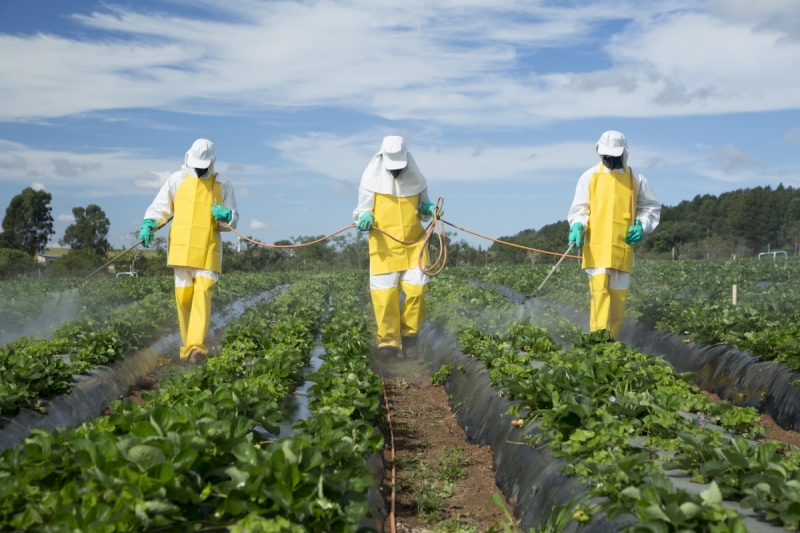Environmental and nature organisations sue the Flemish government in court over its pesticide policy. According to them, not only nature should be better protected, but also schools and rest homes. The case started on February 6 before the Brussels court. If the Flemish government is proved wrong, it must amend the regulations, otherwise, penalty payments will follow.
The organisations are convinced the current policy is insufficiently regulated and even violates European directives. They demand that an assessment of the effects of pesticide use on nature protected by the European Habitats Directive be carried out first. Europe has been demanding such an assessment since 2004, but it has never been done in Flanders.
In addition, the organisations ask that the use of pesticides in water catchment areas and in European-protected nature be scaled back or banned. That obligation has existed since 2011.
Buffer strips should be established around nature, watercourses and vulnerable areas such as schools and rest homes. Today, these are only one to 10 metres wide. The five organisations believe this should be allowed to be 500 metres.
The organisations had served the government with a notice of default at the end of October. There was no conclusive answer. So the organisations Natuurpunt, WWF, Velt, Bond Beter Leefmilieu and Dryade have taken the matter to court.
They feel strengthened in their legal battle by court rulings on environmental and climate action in the Netherlands and France. In France, the Council of State ruled on the pesticide issue three times. "The Council obliged the French government to implement the European pesticides directive," says Dries Verhaeghe of the non-profit organisation Dryade. "That directive was never properly transposed into policy over here." This French court ruling makes the proceedings "the easiest case to win" for the environmental movement, according to observers.
The cabinet of the competent Flemish environment minister, Zuhal Demir (N-VA), says it is still studying the summons. Spokeswoman Katrien Smet points out that Demir wants to halve the use of pesticides by 2030 - the same target set in the European Green Deal.
Fewer insects
To demonstrate the damage to nature, the five organisations point to the decline in insect populations. Traces of pesticides are also turning up in people's blood. The research institute Vito established last year in 212 children from Dessel, Mol and Retie. High levels were found in them. "A stricter pesticide policy is not an option but a must," Vito announced at the time.
Belgium ranks fourth among European countries with the highest pesticide use per hectare of arable land. The statistical data of the Food and Agriculture Organization show that Belgium used 6.130 tonnes of pesticides in 2019. This translates into the use of 7 kilograms of pesticides per hectare of cropland. After Cyprus, The Netherlands and Malta, Belgium is the biggest user of pesticides per hectare of cropland.
Read more in Nature and environmental organizations sue Flemish Government in Pesticides case (website of Bond Beter Leefmilieu, in Dutch)
